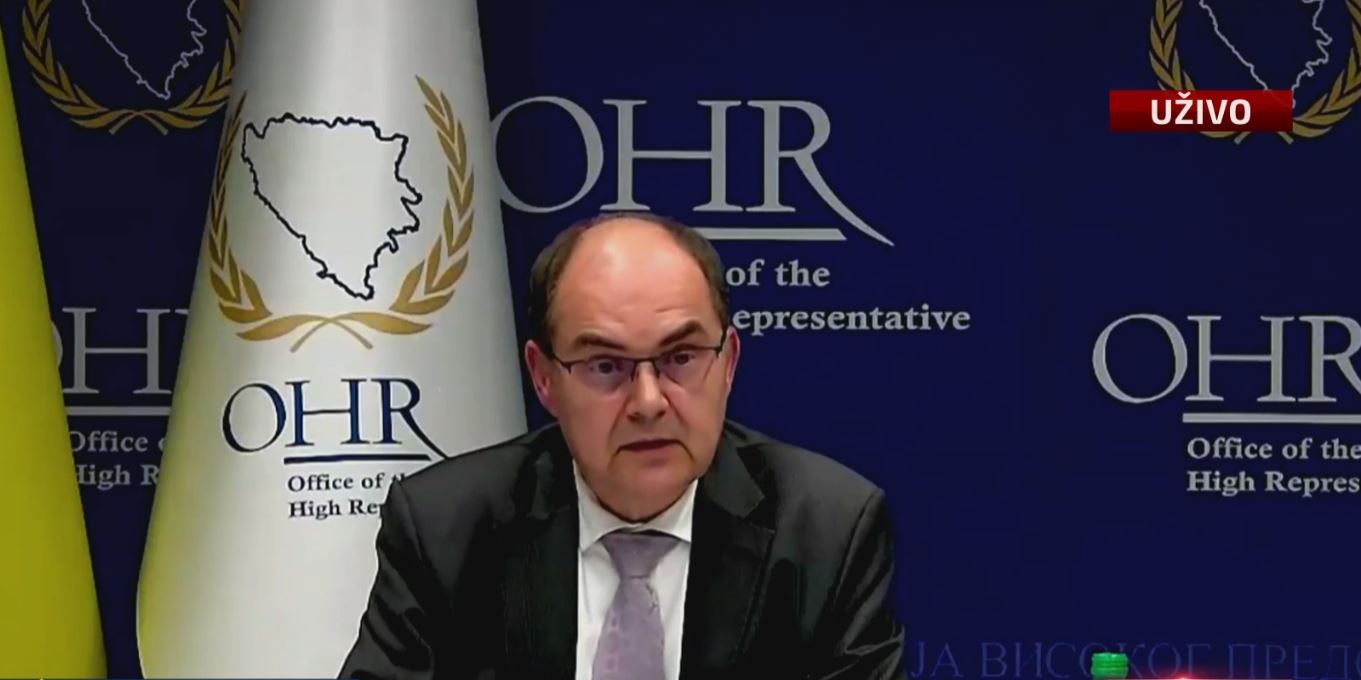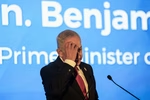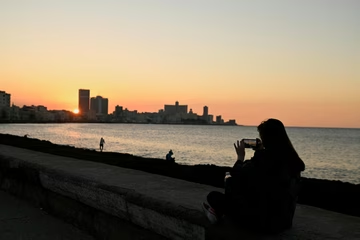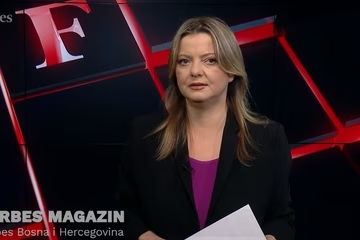Schmidt tells UN Security Council RS officials attacking Dayton Peace Agreement

The High Representative in BiH Christian Schmidt spoke at last night's UN Security Council session after the address of BiH Presidency member Zeljka Cvijanovic, noting that "the President of the Republika Srpska (RS) entity and officials of the RS entity are attacking the Dayton [Peace Agreement] through inflammatory rhetoric regarding secession from the state".
"The topic of today's extraordinary session requires that I make an additional address and I appreciate the opportunity to briefly present my assessment of the situation. Unfortunately, Mrs. Cvijanović's letter that we were able to read does not properly respect the facts and the legal framework of Bosnia and Herzegovina, so I hope you understand that I will not respond to words that I would consider insulting. This is not the place to talk about each other that way. I call for more accuracy, unfortunately, the only thing I see is a malicious misinterpretation in relation to the Dayton Agreement. According to that Agreement, I have to be the guarantor of the existence of the entities that, according to the Constitution, are parts of BiH, which has international subjectivity. Those entities are the Federation (FBiH) and Republika Srpska (RS) and the Brcko District. No one has any intention of dissolving any of those parts. I don't know who the professor you mentioned is (Francis Boyle, an American human rights lawyer and professor of international law at the University of Illinois College of Law), but we can agree that he is wrong. RS is an integral part of BiH," Schmidt pointed out.
The High Representative said that there are threats to the Dayton Peace Agreement and that incendiary rhetoric is coming from the Republika Srpska entity.
"Are there threats to the Peace Agreement? Yes. The President and officials of the RS entity attack the Dayton through inflammatory rhetoric about the separation of the state and the secession of the RS from Bosnia and Herzegovina.
RS President Milorad] Dodik recently stated that Bosniaks can have "25 percent of the territory, the rest does not belong to them". Some interpreted it as an invitation to ethnic incidents. It is anti-Dayton, unconstitutional and a rejection of the Agreement. There are threats to territorial integrity. Mrs. Cvijanovic presented herself as one of the three members of the BiH Presidency, but in September she joined the calls to block the administrative boundary line between the two entities established by the Dayton Agreement," Schmidt said.
"There are conscious efforts to question peace and stability, EUFOR and the High Representative agreed in their assessment. According to EUFOR's assessment, the security situation has stabilized, but challenges are emerging due to political tensions. This is triggered by the rhetoric and actions of representatives from the RS. You just saw some of that. Fortunately, tensions from the RS have not turned into violence yet. Violence against returnees did happen and that worries us. Bosnia and Herzegovina may find itself in a situation of serious political instability, but this can be prevented at a time when the EU offers a path towards European integration. "This is primarily a consequence of the policy of the RS political leadership," said Schmidt.
"The guarantors of the Peace Agreement and the constitutional order are the target of rhetoric these days. I would now also refer to the challenges of historical revisionism, genocide denial and constant threats of Bosnia and Herzegovina’s disintegration. I had the opportunity to implement changes, after many years of inactivity of the parliamentary bodies, for the integrity of elections so that convicted war criminals cannot be candidates. The Peace Agreement is an indispensable element of a peaceful future in Bosnia and Herzegovina and the region. I believe that we should remain committed to that path. I remind political actors of their obligation to abide by the Peace Agreement and cooperate with my office. A letter like the one from Cvijanovic does not fulfil the duty of those in responsible positions. Quite the opposite," Schmidt concluded in his address.
The extraordinary session was requested by Russia, after the BiH Presidency member, Cvijanovic, sent a letter to Russian Ambassador Vasily Nebenzya, in which she asked if she could present the situation in BiH.
Russia forwarded the request to Malta, which chaired the Security Council.
Kakvo je tvoje mišljenje o ovome?
Učestvuj u diskusiji ili pročitaj komentare





 Srbija
Srbija
 Hrvatska
Hrvatska
 Slovenija
Slovenija


























































